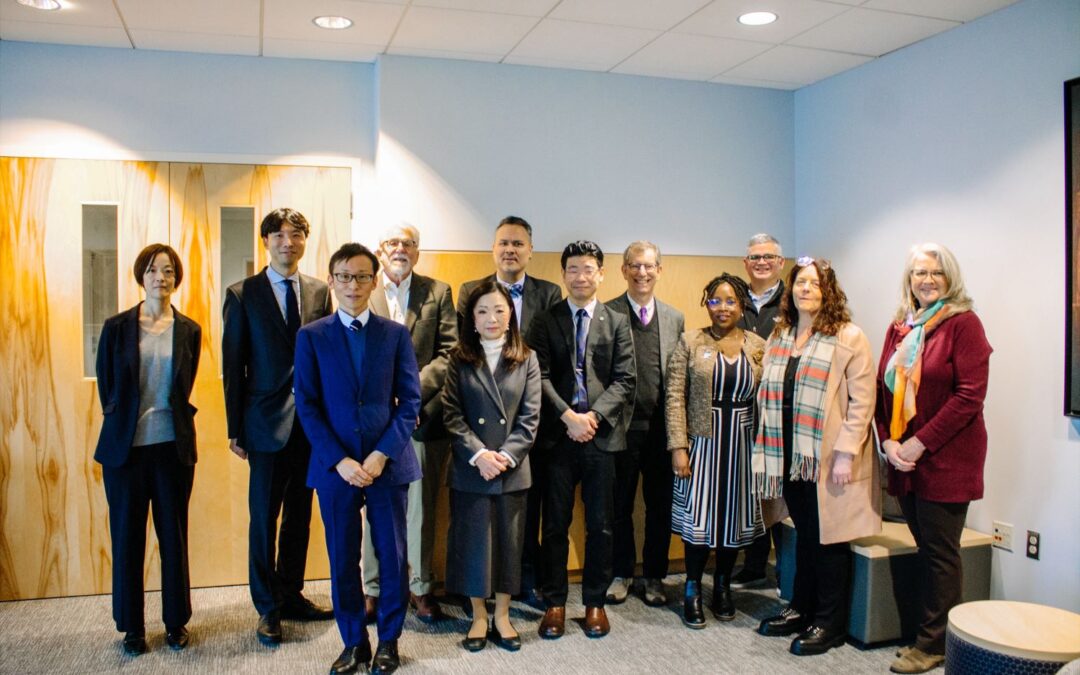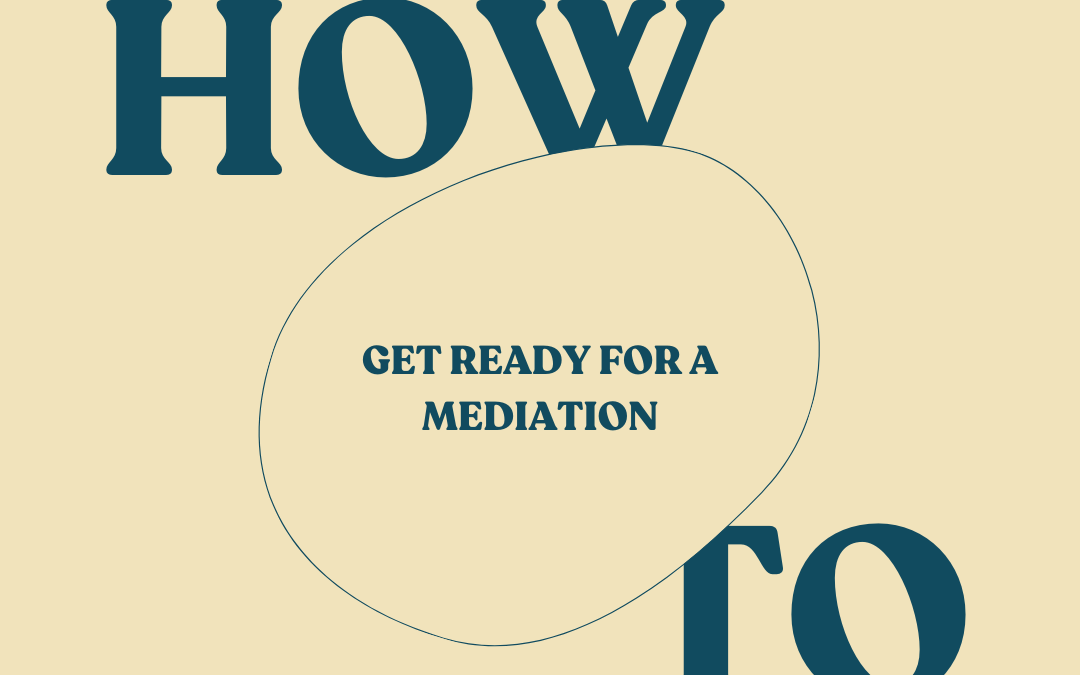
by Meg S | Feb 26, 2025
Conflict as a Path to Understanding
Conflict is a natural part of human interaction, but it doesn’t have to create lasting division. With the right approach, disputes can become opportunities for understanding, healing, and growth. At the Dispute Resolution Center of King County, we’ve seen time and again how mediation fosters resolution while strengthening relationships.
A Case for Mediation: Finding Common Ground
Recently, an organization facing internal challenges turned to mediation for support. The situation involved multiple individuals with differing perspectives, and emotions ran high. The organization’s leadership sought a way forward—one that would prioritize collaboration and understanding rather than tension and division.
Through structured dialogue and professional facilitation, mediation provided a space where all voices could be heard. Skilled mediators, fluent in both English and Spanish, ensured that participants could fully express themselves, breaking down barriers to communication. The process was patient, thoughtful, and focused on finding a resolution that honored everyone’s concerns.
The Impact of Mediation: Voices from Participants
One participant shared that mediation helped them feel “supported and understood,” leading to an outcome they once thought was impossible. Another described the mediators as “patient, caring, and very skilled at asking the right questions,” helping everyone involved feel heard and valued. Ultimately, what had been a difficult conflict became an opportunity for deeper trust and collaboration.
Beyond Resolution: Building Stronger Communities
Mediation is more than just resolving disputes—it’s about building stronger, healthier communities. It fosters open communication, encourages problem-solving, and equips individuals and organizations with the tools to navigate future challenges with confidence.
Find Support Through Mediation
If your workplace, community, or family is facing a conflict, mediation can help. The Dispute Resolution Center of King County is here to provide professional, compassionate, and effective conflict resolution services tailored to your needs.
Schedule a mediation.

by Meg S | Jan 21, 2025
The Dispute Resolution Center of King County (KCDRC) recently participated in an exciting international exchange hosted by KCDRC and the University of Washington School of Law. This event, organized with the university’s support, included dynamic discussions with Commissioner Hon. Jonathon Lack, Professor Terry J. Price, a judge from Uganda, and family court representatives from Japan (Yasufumi Oshima, Shinnosuke Yamaguchi, Hisa Fujino, Takeshi Hitotsuyanagi.) KCDRC board member, Alan Kirtley, an associate professor emeritus at UW, and Board President, Sara Sandford, who helped provide Japanese translation during the event, were integral to the success of these conversations. Together, we explored family law practices, cultural influences, and strategies to advance alternative dispute resolution (ADR). We are deeply grateful to UW and all participants for fostering this meaningful collaboration.

Putting Families First
Hon. Commissioner Lack and Professor Price emphasized the importance of keeping legal processes from interfering with parent-child relationships. Societal changes, such as women’s increased workforce participation, have influenced custody dynamics, shifting from traditional assumptions to more equitable approaches. They emphasized that mandatory ADR is helping reduce court involvement, ensuring that decisions are guided by what is best for children rather than prolonged legal battles.
Insights from Japan
Japan’s family court representatives shared upcoming changes, including a presumption of joint custody starting in 2026 and mandatory mediation in family court. They noted challenges with ADR development in Japan and were eager to learn from KCDRC’s experience.
KCDRC highlighted its accessible services, such as sliding scale fees and free services for those in need, while maintaining separation from legal advice. Discussions delved into cultural differences in parenting plans, such as how societal expectations influence custody agreements and decision-making processes. For example, Japan’s approach often reflects hierarchical organizational structures, where authority figures guide decisions, compared to KCDRC’s collaborative, facilitative, and flexible methods that emphasize individual agency and adaptability.
Further conversations examined the role of technology in intake processes, with Japan exploring online surveys to streamline data collection, while KCDRC shared its experience balancing digital and in-person approaches post-COVID. These discussions highlighted how cultural norms, and organizational styles shape strategies and impact service delivery.
A Unique Opportunity
Dave Martine, KCDRC’s Executive Director, summed up the experience: “The opportunity to exchange ideas with colleagues from another country was such a unique and enriching experience. I deeply value learning about other cultures and how those differences influence laws, policies, and interactions.”
Looking Ahead
KCDRC is grateful to the University of Washington and all participants for fostering this collaboration. The conversations reinforced how alternative dispute resolution can bridge cultural and legal differences to support families and communities worldwide.

by Meg S | Aug 28, 2024
Mediation is a great way to resolve conflicts without going to court. Whether you’re dealing with a workplace issue, a family disagreement, a housing conflict, or a business dispute, being prepared can make all the difference. Here’s how you can get ready for your mediation session.
Mediation is a process where a neutral person (the mediator) helps both sides talk things through and find a solution. The mediator won’t decide who’s right or wrong—they’re there to help you communicate and come to an agreement (if you so choose).
2. Set Your Goals
Think about what you really want out of this mediation. What’s most important to you? Knowing your goals will help you stay focused during the session.
3. Gather Your Documents
Get all the paperwork that relates to the dispute—contracts, emails, receipts, whatever might help your case. Have it organized and ready to go.
4. Understand Your Rights
Make sure you know your rights and any legal responsibilities related to the issue. If you’re unsure, consider talking to a lawyer before the session so you’re not caught off guard.
5. Be Ready to Listen and Talk
Mediation is about communication, so be ready to listen to the other side and clearly explain your own views. Keep calm and respectful, even when things get tense.
6. Think About Compromise
Mediation usually involves some give-and-take. Think about what you might be willing to compromise on to reach a solution that works for both sides.
7. Keep Emotions in Check
It’s natural to feel emotional but try to stay calm and collected during the session. If things get heated, take a deep breath before responding.
8. Talk to Your Mediator
If you’re unsure about how the process works, don’t hesitate to ask your mediator. Knowing what to expect can help ease any nerves.
9. Visualize a Win-Win Outcome
Imagine leaving the session with a solution that feels good to everyone involved. A positive mindset can help you stay focused on finding a resolution.
10. Plan for the Next Steps
Think about what you’ll do after the mediation. How will you put the agreement into action? Planning ahead can help make sure the solution sticks.
In a Nutshell
Being prepared for mediation means understanding the process, knowing what you want, and being open to finding a middle ground. With these tips, you’ll be ready to approach your session with confidence and work toward a positive outcome.
Schedule a mediation now?
by Michelle Wilkinson | Feb 5, 2024
 Picture this. You are having a disagreement with your neighbor about noise levels, and you mention it to your cousin in a phone call. After listening to the details of the argument, your cousin suggests that you need to go to mediation. Great…but what is mediation?
Picture this. You are having a disagreement with your neighbor about noise levels, and you mention it to your cousin in a phone call. After listening to the details of the argument, your cousin suggests that you need to go to mediation. Great…but what is mediation?
How does mediation work?
Many people have never heard of mediation, so you are not alone. Essentially, it is a conversation between two or more people who disagree. It is led by a trained, neutral mediator who doesn’t take sides. Instead, they ask questions and make it easier for the people in conflict to communicate the real issues underlying the problem.
The mediator will help to write up any agreements that come from the conversation, but they never decide the outcomes. The parties negotiate for themselves and determine together how they would like to fix the conflict. The parties meet and settle their conflict in a safe, confidential, and efficient manner to really hear the other party’s perspective and to also have their own ideas heard.
Why choose mediation?
Going to mediation is a less expensive and time-saving alternative to taking the issues to court. So, whether you want peace and quiet, family unity, or a financial settlement, mediation can help. Fortunately, many communities have a dispute resolution center (DRC) that provides reasonably priced conflict resolution services, including here in King County. The Dispute Resolution Center of King County is a non-profit organization that provides sliding scale fees, so everyone has access to conflict resolution services in the community. In fact, several of our services are free thanks to generous donors and government contracted funds. People support and use the mediation services we provide because there are many benefits:
- Mediation has a high success rate
- Significant cost savings compared to litigation
- You get to decide the best outcome
- Confidentiality is guaranteed by state law
- Problems are dealt with quickly
- Gain a better understanding of issues on both sides
- Leave with a written agreement that is legally binding
- Meetings take place virtually for ultimate convenience
If you want to learn more about the conflict resolution services we provide — including housing, workplace, community and family, please visit our website. If you want to set an appointment to discuss your conflict and find out if mediation is right for you, complete our intake form and one of our case managers will follow up with you.
We know that mediation works in many different types of conflict. Contact us today to see if mediation is right in your situation.






